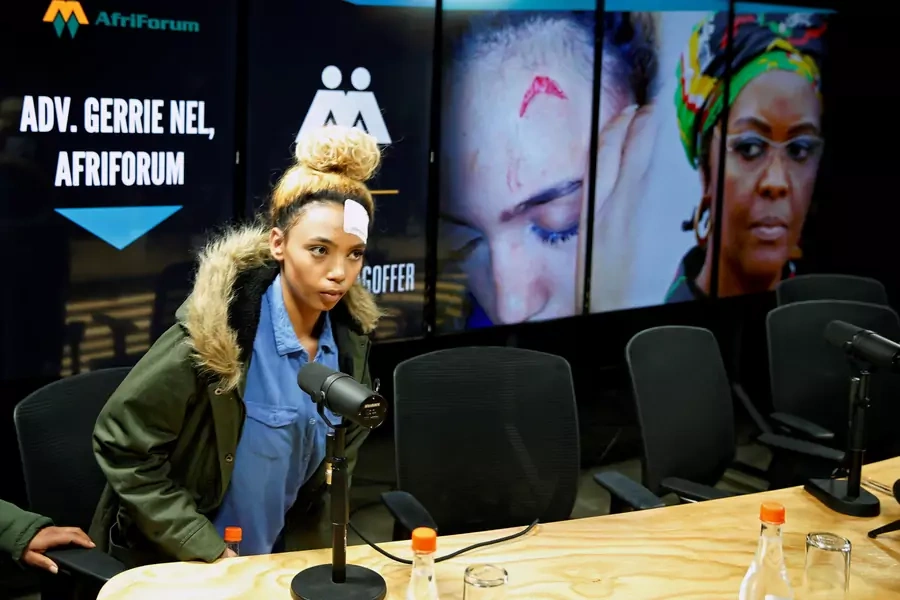Zimbabwe Grotesques

In what is hopefully the twilight of the Mugabe regime, one weird episode follows another. On August 14, President Robert Mugabe publicly bragged that the murderers of twelve white farmers in Zimbabwe will never be prosecuted. Then his wife, Grace, beat a twenty-year-old South African model, Gabriella Engels, with an extension cord after Engels visited Mugabe’s two sons, twenty-five and twenty-one, at a luxury hotel in Johannesburg. According to the media, ten of Grace’s body guards looked on. From photographs posted on social media by the victim, the First Lady of Zimbabwe caused serious damage. The victim filed assault charges, but the South African foreign minister extended diplomatic immunity to Mrs. Mugabe, who has since left the country. Then, in an apparently unrelated episode, Zimbabwe blocked flights by South African Airways and British Airways in and out of the country in retaliation for South Africa suspending Air Zimbabwe’s landing rights for failing to pay fees.
It is hard to know the extent to which these episodes reflect either the criminal or the incompetent dimensions of the Mugabe regime. As for the murdered farmers, Mugabe bid goodnight to the rule of law many years ago. His regime continues to be propped up by often arbitrary violence. Grace Mugabe wants to be Robert’s successor as president of Zimbabwe and, in the meantime, she is his staunch defender and has even referred to him continuing his rule from beyond the grave, presumably channeling through her. She is used to getting what she wants, and is prepared to indulge in personal violence when embarrassed. Last year in Hong Kong, she assaulted a photographer for photographing her shopping at a luxury emporium during a time of near-famine in Zimbabwe. As in South Africa, her First Lady status ensured her diplomatic immunity, and she was not charged. These episodes would appear to be at the criminal end of Zimbabwe’s continuum. The blocking of South African Airways and British Airways from operating in Zimbabwe, by contrast, looks more like incompetence. Zimbabwe’s action left stranded foreign tourists, hardly a good marketing strategy for their tourism industry, which is an important source of foreign exchange for a country in economic paralysis.
More on:
South Africa’s leaders, from Mandela through Zuma, have long indulged Mugabe’s antics. In part, this reflects Mugabe’s status as the grand old man of southern African liberation, but it also reflects South Africa’s limited options. The implosion of Zimbabwe and the huge refugee flows it is likely to engender is contrary to the interests of the states in the region. Hence, there appears to be a predisposition to prop-up the Mugabe regime. Critics of South Africa like to say that Pretoria could pull the plug on Zimbabwe’s electricity and thereby bring down the Mugabe regime. It is by no means clear that this is possible, and, even if it is, whether Mugabe’s successors would be any better. Zimbabwe’s dysfunctional and criminal governance will continue to besmirch unjustly the international reputation of its southern African neighbors, especially Botswana and South Africa, characterized by democracy and the rule of law.
More on:
 Online Store
Online Store